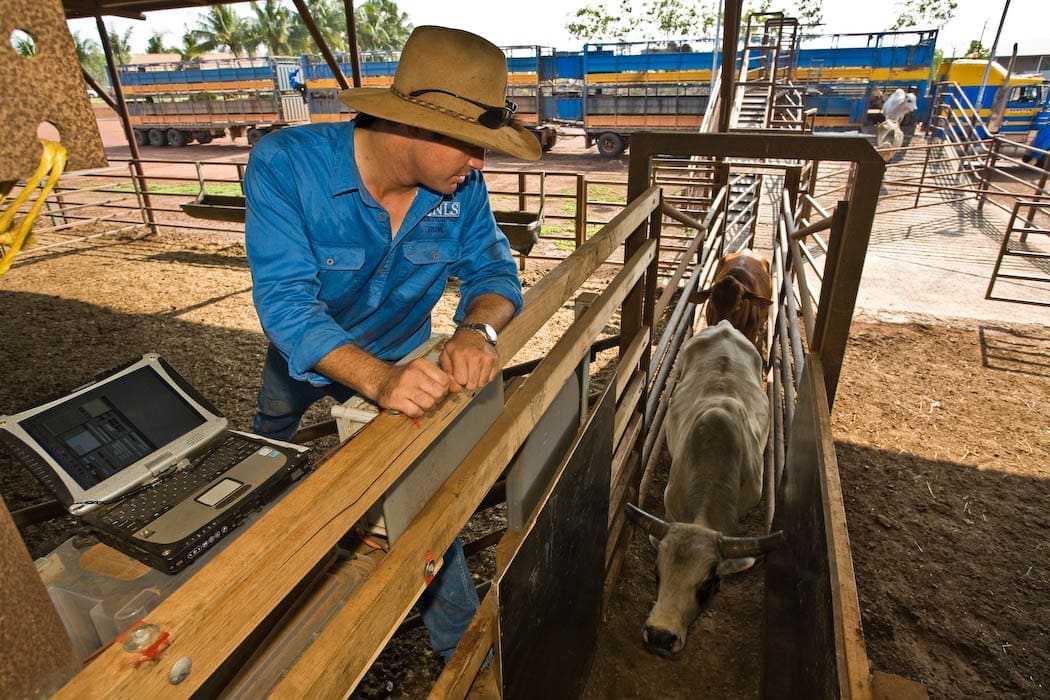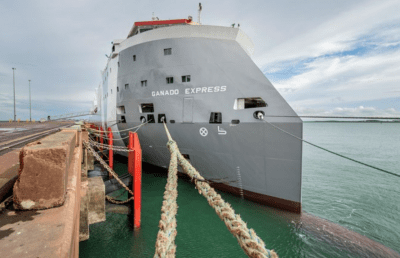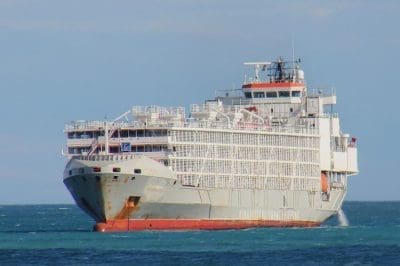
A NEW travel insurance policy tailored to live export crews has been released to industry crews after months of lobbying from stock handlers and veterinarians who were unable to secure basic coverage for their voyages.
The new policy was presented to the industry in the past fortnight by Nutrien Ag Solutions and insurance broker Marsh – with Accident and Health International as the insurer.
Live exporters have raised the issue with Beef Central earlier this year, with one former crew member saying most “stockies” were boarding ships without coverage.
The initial corporate partnership discussion between the Australian Live Exporters Council and Nutrien identified insurance for the live export industry’s stock people and vets was a priority.
ALEC CEO Mark Harvey Sutton said finding insurance in the past year had been difficult for the industry’s staff.

“We are so impressed by the amount of work and support that has been given to the live export industry by both Nutrien and Marsh and ultimately the Insurer Accident and Health International,” Mr Harvey-Sutton said.
“This is an opportunity for our members, stock people and vets to independently secure insurance, which previously has been difficult.”
Workers calling out for insurance
Live export stockwoman Fiona Baird said the new insurance policy was welcomed by the workers, who have been lobbying for insurance for a long time.
“We have had a big win with this, we are still waiting to see the final policy, but from what we have seen so far it is pretty good,” Ms Baird said.
“The new policy is ‘per trip’, which is something crew members haven’t been able to do, and it certainly doesn’t cost as much as the current insurance policies.”
Ms Baird said as a full-time employee of a live exporter her insurance was paid, but others working as contractors had to pay for their own insurance which could cost more than $5,000. She said most “stockies” were contractors.
“For guys who were just sailing once or twice there was no point being insured, because they were basically working to pay for their policy,” she said.
“Basically, all stockies want to know is that they can be flown back to Australia if they are sick. A lot of the policies didn’t include things like ‘sickness in port’ or ‘sickness in a foreign country’ which we think this policy has.”
The live export workforce has had some major interruptions in the past two years, with COVID 19 preventing a lot of them from flying home and forcing them to stay on ships. Ms Baird said asthe industry has been scrambling to fill holes, which made the workforce more casual.

The Gulf Livestock 1, formerly named the Rahmeh, was carrying 43 crew members and 5,867 dairy heifers from NZ to China when it disappeared during a Tyhpoon in the early hours of September 2. (Image: VesselFinder.Com)
“A lot of people are transient at the moment, there’s a lot of new people and people coming out of retirement to help with trips,” she said.
“In the last 18 months, there have been a lot of stockies that have been sailing without insurance.”
Gulf livestock 1 disaster motivates lobbying
Ms Baird said concerns about insurance were ramped up when the Gulf Livestock 1 sunk in Japanese waters with 42 crew members on board – including two Australians.
“The Gulf Livestock 1 had a lot of crew members questioning if they had insurance,” she said.
“What we found is that full-time stockies had some sort of insurance, but most guys jumping on and off were not insured.”
Ms Baird said it prompted workers to lobby the industry’s peak bodies to come up with insurance policies tailored to the industry.
“We first thought Meat & Livestock Australia could help us because they take the northern producers’ levies and the industry will stop without ship crews,” she said.
“In the end it was ALEC who stepped in which was brilliant, they came through with the goods.”
